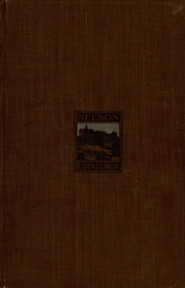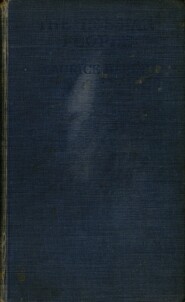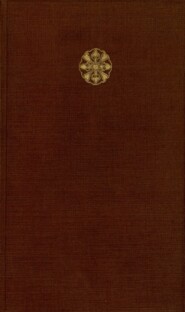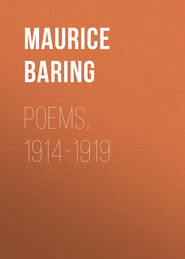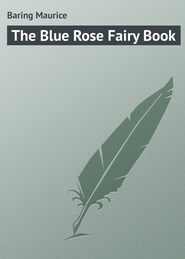По всем вопросам обращайтесь на: info@litportal.ru
(©) 2003-2024.
✖
Overlooked
Настройки чтения
Размер шрифта
Высота строк
Поля
"They have both misunderstood, you see; and one misunderstanding has reacted on the other. Perhaps you don't know the whole story?"
"Do tell it me," he said. Once more he had the sensation of coasting or free-wheeling down a pleasant hill of perfect companionship.
"Many years ago," said Mrs. Roseleigh, "she was engaged to Lancelot Stukely. She wouldn't marry him because she thought she couldn't leave her father. She couldn't have left him then. He depended on her for everything. But he died, and Lancelot, who was away, didn't come back and didn't write. He didn't dare, poor man! It was very silly of him. He thought he was too poor to offer her to share his poverty, but she wouldn't have minded. Anyhow he waited and time passed, and then the other day his uncle died and left him money, and he came back at once, and came here at once, to see her, not to see Donna Laura. That was just an accident, Donna Laura being here, but when he came here he thought Kathleen no longer cared, so he decided to go away without saying anything.
"Kathleen had been longing for him to come back, had been expecting him to come back for years. She had been waiting for years. She was not normal from excitement, and then she had a shock and disappointment. She was not, you see, herself. She was susceptible to all influences. She was magnetic for the moment, ready for an electric disturbance; she was like a watch that is taken near a dynamo on board ship, it makes it go wrong. And now she realizes that she is going wrong and that she won't go right till she is demagnetized."
"Ah!" said Anikin, "she realizes."
"You see," said Mrs. Roseleigh gently, "it wasn't anyone's fault. It just happened."
"And how will she be demagnetized?" asked Anikin.
"Ah, that is just it," said Mrs. Roseleigh. "We must all try and help her. We must all try to show her that we want to help. To show her that we understand."
Anikin wondered whether Mrs. Roseleigh was speaking on a full knowledge of the case, or whether she knew something and had guessed the rest.
"I suppose," he said, "you have always known what has happened to Miss Farrel?"
"I know everything that has happened to Kathleen," she said. "You see, I have known her for years. She's my best friend. And now I can judge just as well from what she doesn't say, as from what she says. She always tells me enough for it not to be necessary to tell me any more. If it was necessary, if I had any doubt, I could, and should always ask."
"Then you think," said Anikin, "that she will marry Stukely?"
"In time, yes; but not at once."
Anikin remembered Stukely's conduct and was puzzled.
"I am sure," he said, "that since he has been here he has made no effort."
"Of course he didn't," she said, "He saw that it was useless. He knew at once."
"Is he that kind of man, that knows at once?"
"Yes, he's that kind of man. He saw directly; directly he saw her, and he didn't say a word. He just settled to go."
Anikin felt this was difficult to believe; all the more difficult because he wanted to believe it. Was Mrs. Roseleigh making it easy, too easy?
"But he's going back to Africa," he said.
"How do you know?" she asked.
"He told Mr. Asham, and he told me."
"He will go to London first. Kathleen will not stay here much longer either. I am going soon to London, too, and I shall see Lancelot Stukely there before he goes away, and do my best. And if you see him – "
"Before he goes?"
"Before he goes," she went on, "if you see him, perhaps you could help too, not by saying anything, of course, but sometimes one can help – "
"I have a dread," said Anikin, "of some explanations."
"That is just what she doesn't want – explanations, neither he nor she," said Mrs. Roseleigh. "Kathleen wants us to understand without explanations. She is praying we may understand without her having to explain to us, or without our having to explain to her. She wants to be spared all that. She has already been through such a lot. She is ashamed at appearing so contradictory. She knows I understand, but she doubts whether any one else ever could, and she does not know where to turn, nor what to do."
"And when you go to London," he asked, "will you make it all right?"
"Oh yes," she said.
"Are you quite sure you can make it all right? I mean with Stukely, of course," he said.
"Of course," said Mrs. Roseleigh, but she knew perfectly well that he really meant all right with Kathleen.
"And you think he will marry her, and that she will marry him?" he asked one last time.
"I am quite sure of it," she said, "not at once, of course, but in time. We must give them time."
"Very well," he said. He did not feel quite sure that it was all right.
Mrs. Roseleigh divined his uncertainty and his doubts.
"You see," she said, "what happened was very complicated. She knows that ever since Lancelot arrived, she was never really herself – "
"She knows?" he asked.
"She only wants to get back to her normal self."
"Well," he said, "I believe you know best. I will do what you tell me. I was thinking of going to London myself," he added. "Do you think that would be a good plan? I might see Stukely. I might even travel with him."
"That," said Mrs. Roseleigh, "would be an excellent plan."
Mrs. Roseleigh's explanation, the explanation she had just served out to Anikin, was, as far as she was concerned, a curious blend of fact and fiction; of honesty and disingenuousness. She was convinced that both Kathleen and Anikin had made a mistake, and that the sooner the mistake was rectified the better for both of them. She thought if it was rectified, there was every chance of Stukely marrying Kathleen, but she had no reason to suppose that her explanation of his conduct was the true one. She thought Stukely had forgotten all about Kathleen, but there was no reason that he should not be brought back into the old groove. A little management would do it. He would have to marry now. He would want to marry; and it would be the natural, normal thing for him to marry Kathleen, if he could be persuaded that she had never cared for anyone else; and Mrs. Roseleigh felt quite ready to undertake the explanation. She was quite disinterested with regard to Kathleen and quite disinterested towards Stukely. Was she quite disinterested towards Anikin?
She would not have admitted to her dearest friend, not even to herself, that she was not; but as a matter of fact she had consciously or unconsciously annexed Anikin. He was made to be charmed by her. She was not in the least in love with him, and she did not think he was in love with her; she was not a dynamo deranging a watch; she was a magnet attracting a piece of steel; but she had not done it on purpose. She had done it because she couldn't help it. Her conscience was quite clear, because she was convinced she was helping Kathleen, Stukely and Anikin out of a difficult and an impossible situation; but at the same time (and this is what she would not have admitted) she was pleasing herself.
Their conversation was interrupted by the arrival first of Kathleen herself, then of Arkright.
Kathleen had in her hands the copy of a weekly review.
After mutual salutations had passed, Kathleen and Arkright sat down near Mrs. Roseleigh and Anikin.
"Aunt Elsie," said Kathleen to Arkright, "asked me to give you back this. She is not coming down yet, she is very busy." She handed Arkright the review.
"Ah!" said Arkright. "Did the article on Nietzsche interest her?"
"Very much, I think," said Kathleen, "but I liked the story best. The story about the brass ring."
"A sentimental story, wasn't it?" said Arkright.
"What was it about?" asked Anikin.
"Do tell it me," he said. Once more he had the sensation of coasting or free-wheeling down a pleasant hill of perfect companionship.
"Many years ago," said Mrs. Roseleigh, "she was engaged to Lancelot Stukely. She wouldn't marry him because she thought she couldn't leave her father. She couldn't have left him then. He depended on her for everything. But he died, and Lancelot, who was away, didn't come back and didn't write. He didn't dare, poor man! It was very silly of him. He thought he was too poor to offer her to share his poverty, but she wouldn't have minded. Anyhow he waited and time passed, and then the other day his uncle died and left him money, and he came back at once, and came here at once, to see her, not to see Donna Laura. That was just an accident, Donna Laura being here, but when he came here he thought Kathleen no longer cared, so he decided to go away without saying anything.
"Kathleen had been longing for him to come back, had been expecting him to come back for years. She had been waiting for years. She was not normal from excitement, and then she had a shock and disappointment. She was not, you see, herself. She was susceptible to all influences. She was magnetic for the moment, ready for an electric disturbance; she was like a watch that is taken near a dynamo on board ship, it makes it go wrong. And now she realizes that she is going wrong and that she won't go right till she is demagnetized."
"Ah!" said Anikin, "she realizes."
"You see," said Mrs. Roseleigh gently, "it wasn't anyone's fault. It just happened."
"And how will she be demagnetized?" asked Anikin.
"Ah, that is just it," said Mrs. Roseleigh. "We must all try and help her. We must all try to show her that we want to help. To show her that we understand."
Anikin wondered whether Mrs. Roseleigh was speaking on a full knowledge of the case, or whether she knew something and had guessed the rest.
"I suppose," he said, "you have always known what has happened to Miss Farrel?"
"I know everything that has happened to Kathleen," she said. "You see, I have known her for years. She's my best friend. And now I can judge just as well from what she doesn't say, as from what she says. She always tells me enough for it not to be necessary to tell me any more. If it was necessary, if I had any doubt, I could, and should always ask."
"Then you think," said Anikin, "that she will marry Stukely?"
"In time, yes; but not at once."
Anikin remembered Stukely's conduct and was puzzled.
"I am sure," he said, "that since he has been here he has made no effort."
"Of course he didn't," she said, "He saw that it was useless. He knew at once."
"Is he that kind of man, that knows at once?"
"Yes, he's that kind of man. He saw directly; directly he saw her, and he didn't say a word. He just settled to go."
Anikin felt this was difficult to believe; all the more difficult because he wanted to believe it. Was Mrs. Roseleigh making it easy, too easy?
"But he's going back to Africa," he said.
"How do you know?" she asked.
"He told Mr. Asham, and he told me."
"He will go to London first. Kathleen will not stay here much longer either. I am going soon to London, too, and I shall see Lancelot Stukely there before he goes away, and do my best. And if you see him – "
"Before he goes?"
"Before he goes," she went on, "if you see him, perhaps you could help too, not by saying anything, of course, but sometimes one can help – "
"I have a dread," said Anikin, "of some explanations."
"That is just what she doesn't want – explanations, neither he nor she," said Mrs. Roseleigh. "Kathleen wants us to understand without explanations. She is praying we may understand without her having to explain to us, or without our having to explain to her. She wants to be spared all that. She has already been through such a lot. She is ashamed at appearing so contradictory. She knows I understand, but she doubts whether any one else ever could, and she does not know where to turn, nor what to do."
"And when you go to London," he asked, "will you make it all right?"
"Oh yes," she said.
"Are you quite sure you can make it all right? I mean with Stukely, of course," he said.
"Of course," said Mrs. Roseleigh, but she knew perfectly well that he really meant all right with Kathleen.
"And you think he will marry her, and that she will marry him?" he asked one last time.
"I am quite sure of it," she said, "not at once, of course, but in time. We must give them time."
"Very well," he said. He did not feel quite sure that it was all right.
Mrs. Roseleigh divined his uncertainty and his doubts.
"You see," she said, "what happened was very complicated. She knows that ever since Lancelot arrived, she was never really herself – "
"She knows?" he asked.
"She only wants to get back to her normal self."
"Well," he said, "I believe you know best. I will do what you tell me. I was thinking of going to London myself," he added. "Do you think that would be a good plan? I might see Stukely. I might even travel with him."
"That," said Mrs. Roseleigh, "would be an excellent plan."
Mrs. Roseleigh's explanation, the explanation she had just served out to Anikin, was, as far as she was concerned, a curious blend of fact and fiction; of honesty and disingenuousness. She was convinced that both Kathleen and Anikin had made a mistake, and that the sooner the mistake was rectified the better for both of them. She thought if it was rectified, there was every chance of Stukely marrying Kathleen, but she had no reason to suppose that her explanation of his conduct was the true one. She thought Stukely had forgotten all about Kathleen, but there was no reason that he should not be brought back into the old groove. A little management would do it. He would have to marry now. He would want to marry; and it would be the natural, normal thing for him to marry Kathleen, if he could be persuaded that she had never cared for anyone else; and Mrs. Roseleigh felt quite ready to undertake the explanation. She was quite disinterested with regard to Kathleen and quite disinterested towards Stukely. Was she quite disinterested towards Anikin?
She would not have admitted to her dearest friend, not even to herself, that she was not; but as a matter of fact she had consciously or unconsciously annexed Anikin. He was made to be charmed by her. She was not in the least in love with him, and she did not think he was in love with her; she was not a dynamo deranging a watch; she was a magnet attracting a piece of steel; but she had not done it on purpose. She had done it because she couldn't help it. Her conscience was quite clear, because she was convinced she was helping Kathleen, Stukely and Anikin out of a difficult and an impossible situation; but at the same time (and this is what she would not have admitted) she was pleasing herself.
Their conversation was interrupted by the arrival first of Kathleen herself, then of Arkright.
Kathleen had in her hands the copy of a weekly review.
After mutual salutations had passed, Kathleen and Arkright sat down near Mrs. Roseleigh and Anikin.
"Aunt Elsie," said Kathleen to Arkright, "asked me to give you back this. She is not coming down yet, she is very busy." She handed Arkright the review.
"Ah!" said Arkright. "Did the article on Nietzsche interest her?"
"Very much, I think," said Kathleen, "but I liked the story best. The story about the brass ring."
"A sentimental story, wasn't it?" said Arkright.
"What was it about?" asked Anikin.






